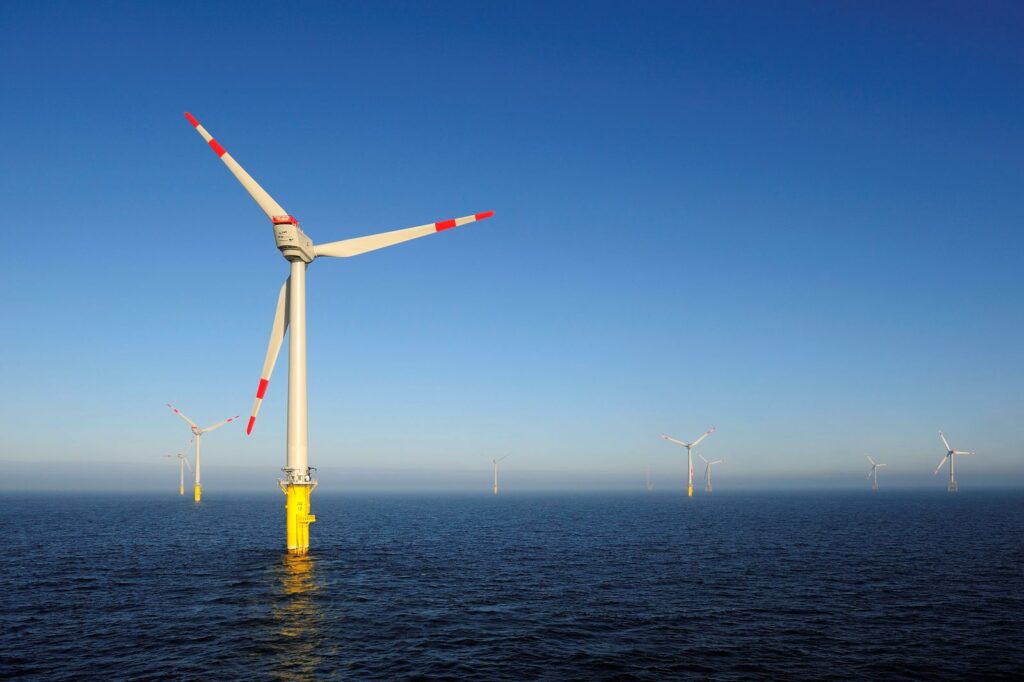NorthH2, Deutsche Offshore-Testfeld- und Infrastruktur (DOTI), and the Offshore-Windenergie Foundation are collaborating to create an offshore electrolyzer demonstrator at the Alpha Ventus wind farm in the German North Sea.
In a significant development for sustainable energy, the partners signed a letter of intent on 26 November 2024 to construct a 10 MW offshore electrolysis demonstrator at Germany’s first offshore wind farm, Alpha Ventus.
Part of the NORTHSEA Hydrogen project pipeline by NorthH2, this initiative aims to demonstrate hydrogen production’s feasibility and efficiency at sea using a prototype wind turbine foundation.
Power from Alpha Ventus will drive the proton exchange membrane electrolyzer (PEM). Seawater will be desalinated with waste heat from electrolysis, then divided into hydrogen and oxygen.
The hydrogen will be stored, with reconversion tested during low-wind periods. The partners are exploring options for direct usage of the hydrogen produced at sea.
The generated quantities are currently insufficient for offshore loading and transport to land due to high logistical costs. However, upon completion of the AquaDuctus pipeline, which will connect the North Sea with the land pipeline network, the demonstrator can be integrated, allowing hydrogen to be fed in.
This project seeks to yield insights for future commercial operation of offshore electrolyzers. It will provide a platform for industrial partners and research to test and optimize systems under real conditions.
The project is also expected to assist authorities in establishing regulatory frameworks for offshore electrolysis project approvals.
Andreas Wellbrock, Managing Director of NorthH2, stated, “The 10MW offshore electrolysis demonstrator is critical for enabling green hydrogen production at sea.”
Karina Würtz, Managing Director of the Offshore-Windenergie Foundation, noted, “The hydrogen sector faces technical and economic challenges, particularly offshore. We welcome this initiative to test technology components in the North Sea’s harsh conditions.”

Follow offshoreWIND.biz on:
Original Story at www.offshorewind.biz
